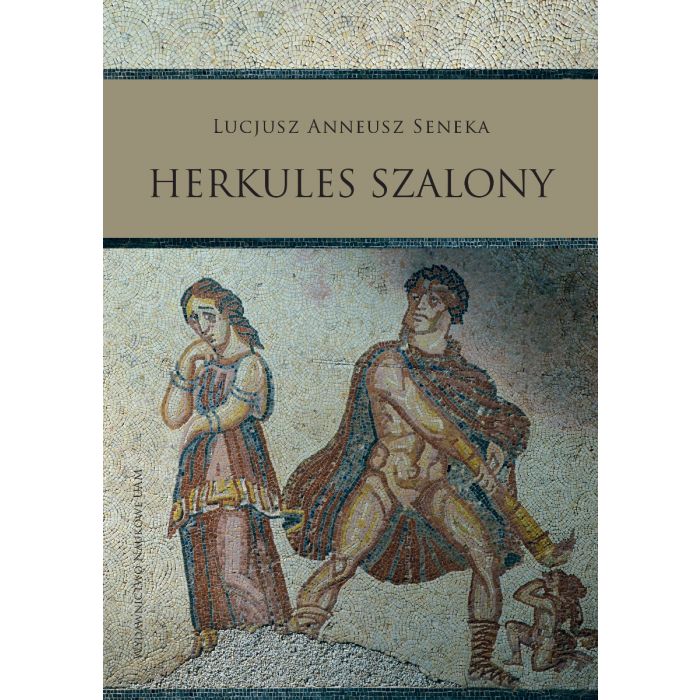Lucjusz Anneusz Seneka. Herkules szalony
- In Stock: out of stock
- ISBN: 978-83-232-4146-1
- DOI: 10.14746/amup.9788323241478
- Category: Literary Studies
- Year of publication: 2022
Herkules szalony to jedna z tragedii rzymskiego filozofa i polityka Seneki Młodszego, który był wychowawcą i doradcą Nerona. Za panowania Klaudiusza spędził osiem lat na wygnaniu na Korsyce, a po dojściu Nerona do władzy przez krótki okres wywierał wpływ na władcę. Ostatecznie został jednak oskarżony o spisek na jego życie i zmuszony do popełnienia samobójstwa w 65 roku n.e. Herkules szalony to dzieło przedstawiające bohatera, który całe życie poświęcił walce z potworami w obronie ludzkości, ale nie był w stanie ochronić własnej żony i dzieci przed potworem tkwiącym w nim samym. Herkules, pod wpływem szaleństwa zesłanego przez nienawidzącą go macochę Junonę, brutalnie morduje rodzinę, a następnie wraca do zmysłów i musi żyć ze zbrodnią, którą popełnił. Tragedia może być odczytywana jako aluzja do panowania Nerona, ale w gruncie rzeczy porusza uniwersalny temat zła i szaleństwa, które tkwią w każdym z nas, oraz zadaje pytanie, na czym polega człowieczeństwo.
Wykaz skrótów
WPROWADZENIE
Życie Seneki
Tragedie Seneki
Postać Herkulesa przed Seneką
Szaleństwo Herkulesa u Eurypidesa i Seneki
Interpretacyjne problemy
Uniwersalność i aktualność tematyki Herkulesa szalonego
Uwagi na temat przekładu
Lucjusz Anneusz Seneka
HERKULES SZALONY
Akt I
Akt II
Akt III
Akt IV
Akt V
Bibliografia
The Madness of Hercules is one of the tragedies written by the Roman philosopher and politician Seneca the Younger, who was Nero's tutor and advisor. He spent eight years in exile in Corsica during the reign of Claudius, and briefly exerted an influence over the ruler after Nero's rise to power. However, he was ultimately accused of plotting against Claudius and was forced to commit suicide in 65 AD. The Madness of Hercules is a work depicting a hero who devoted his entire life to fighting monsters in defence of humanity, but who was unable to protect his own wife and children from the monster within himself. Under the influence of the mad frenzy by his stepmother Juno, who hates him, Hercules brutally murders his family and then comes back to his senses and has to live with the crime he committed. The tragedy can be read as an allusion to the reign of Nero, but in essence it touches on the universal theme of evil and madness that lies within each of us, and asks what the basis of humanity really is.
| Detailed information | |
|---|---|
| Wprowadzenie |
Download file

|
| Spis treści |
Download file

|
|
|
|
| Publication Version | printed |
| Format | 17.00 x 24.00 |
| Language | polski |
| Title (EN) | Lucius Annaeus Seneca the Younger. The Madness of Hercules |
| Type of publication | Monografia |
| Edition | I |
| Series | Filologia klasyczna nr 41 |
| ISSN | 0554-8160 |
| ISBN | 978-83-232-4146-1 |
| DOI | 10.14746/amup.9788323241478 |
| Number of pages | 101 |
| Number of publishing sheets | 5,50 |
